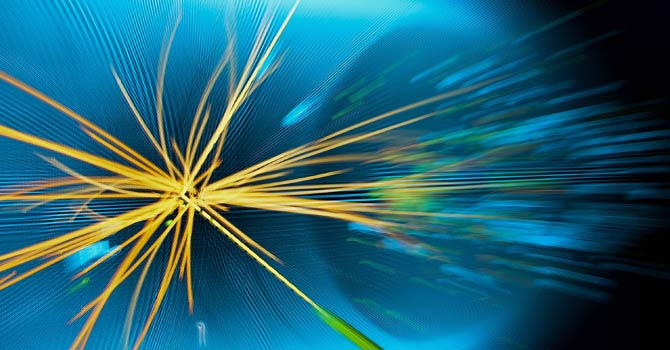SYDNEY: Physicists said on Thursday the potential discovery of the “God particle” was a gateway to a new era that could see humanity unlock some of the universe's great mysteries including dark matter.
The European Organisation for Nuclear Research (CERN) unveiled data from the Large Hadron Collider on Wednesday “consistent with the long-sought Higgs boson”, an elusive particle thought to help explain why matter has mass.
It was hailed as a huge moment for science by physicists gathered in Australia, where CERN's findings were unveiled via videolink from Geneva at a landmark conference attended by hundreds of the field's top experts.
Scientists went into a frenzy following the announcement, speculating that it could one day make light speed travel possible by “un-massing” objects or allow huge items to be launched into space by “switching off” the Higgs.
CERN scientist Albert De Roeck likened it to the discovery of electricity, when he said humanity could never have imagined its future applications.
“What's really important for the Higgs is that it explains how the world could be the way that it is in the first millionth of a second in the Big Bang,” de Roeck told AFP.
“Can we apply it to something? At this moment my imagination is too small to do that.”Physicist Ray Volkas said “almost everybody” was hoping that, rather than fitting the so-called Standard Model of physics -- a theory explaining how particles fit together in the Universe -- the Higgs bosun would prove to be “something a bit different”.
“If that was the case that would point to all sorts of new physics, physics that might have something to do with dark matter,” he said, referring to the hypothetical matter some suggest makes up most of the mass in the universe.
“It could be, for example, that the Higgs particle acts as a bridge between ordinary matter, which makes up atoms, and dark matter, which we know is a very important component of the universe.”
That would have really fantastic implications for understanding all of the matter in the universe, not just ordinary atoms,” he added.
De Roeck said scrutinising the new particle and determining whether it supported something other than the Standard Model would be the next step for CERN scientists.
Clarification could be expected by the beginning of 2013; definitive proof that it fitted the Standard Model could take until 2015 when the LHC had more power and could harvest more data.
De Roeck said he would find it a “little boring at the end if it turns out that this is just the Standard Model Higgs”.
Instead, he was hoping it would be a “gateway or a portal to new physics, to new theories which are actually running nature” such as supersymmetry, which hypothesises that there are five different Higgs particles governing mass.
The search for Higgs -- the logical next step of which de Roeck said would be searching for, and eventually being able to produce, dark matter particles -- has already had huge benefits to medicine and technology.
Volkas said the Internet was born at CERN as a solution to high-volume data-sharing and other major spin-offs were likely to follow as physicists continued to “push the boundaries of pure science”.
“We just want to know how the world works, but in order to answer those questions you have to develop new technologies,” he said.
Funding for particle physics is already under scrutiny in North America, where the LHC's predecessor, the Tevatron, was closed late last year due to financial constraints.
De Roeck said there were similar problems in Europe, where physicists will meet in September to discuss research priorities for the next 20 years and whether they need and can afford an accelerator after the LHC.
“That is going to be a tough fight,” he said. “Despite this momentous moment we have now, it doesn't necessarily bring the funding which one would require.” He urged governments and other key contributors to see fundamental science as a “must” rather than a luxury.
“This is the only way we can actually move on and have a deeper understanding of how things work. It can only be in our benefit exploring that.”













































Dear visitor, the comments section is undergoing an overhaul and will return soon.